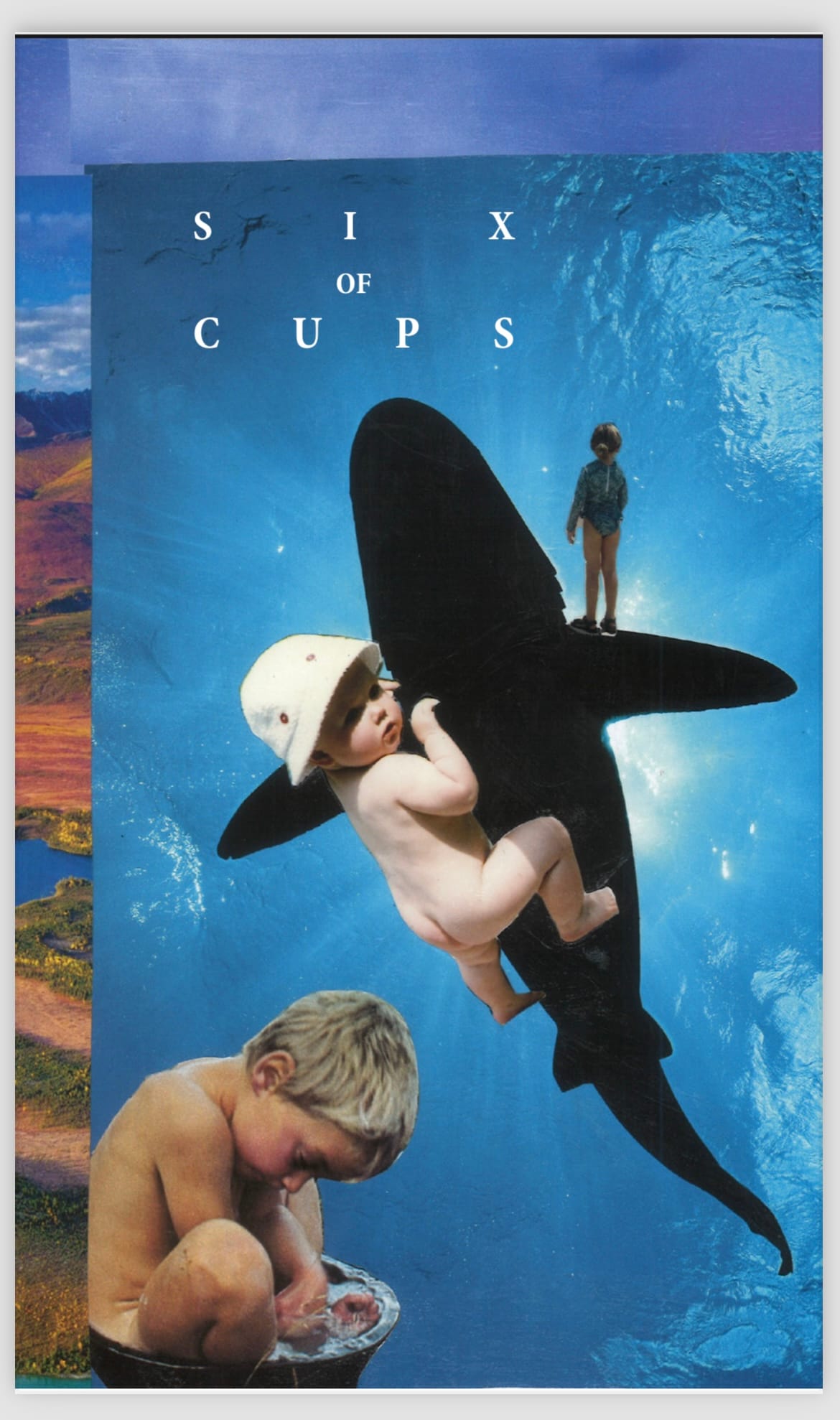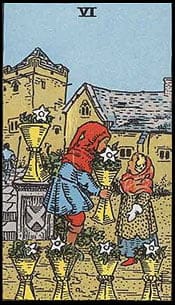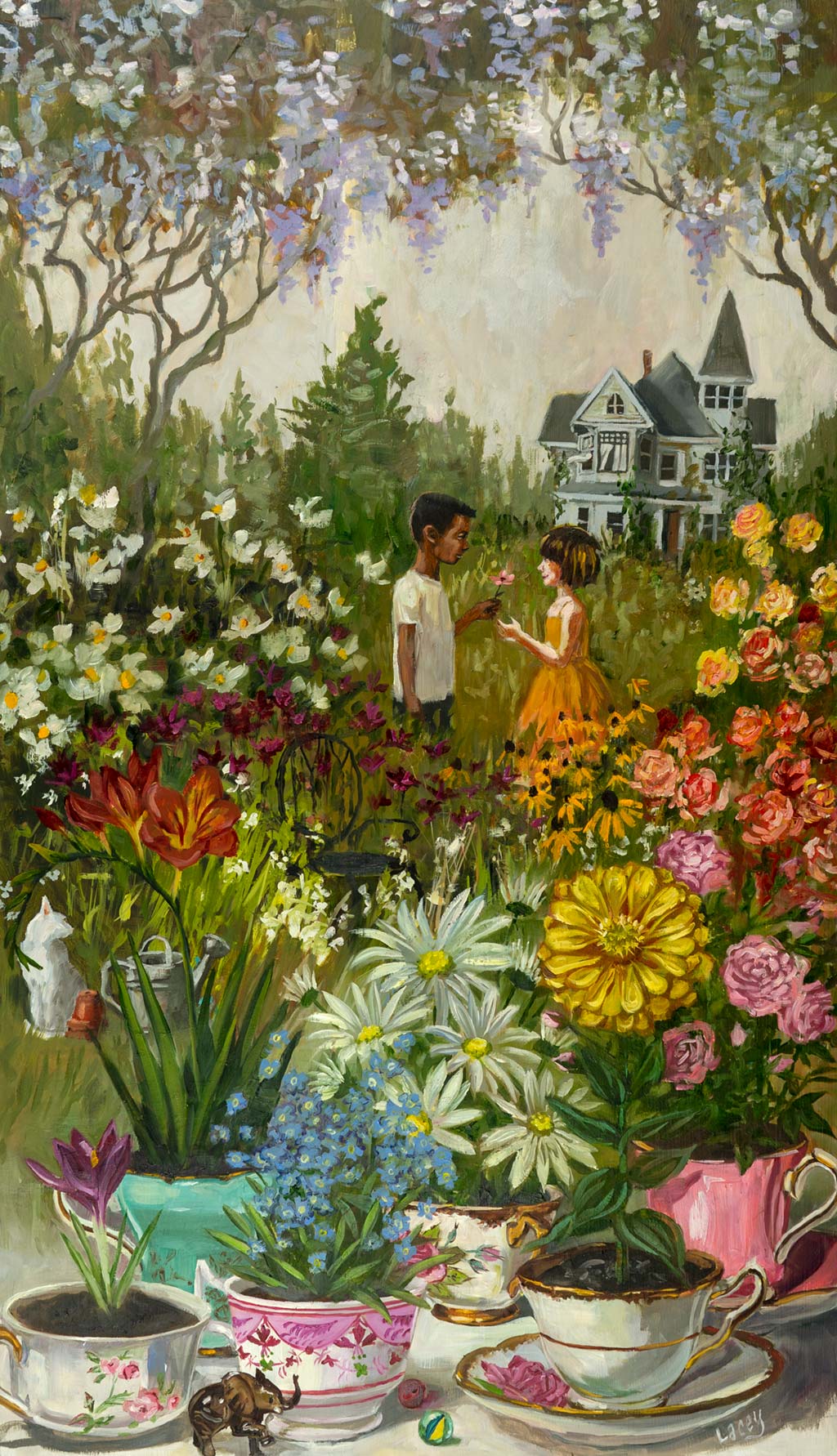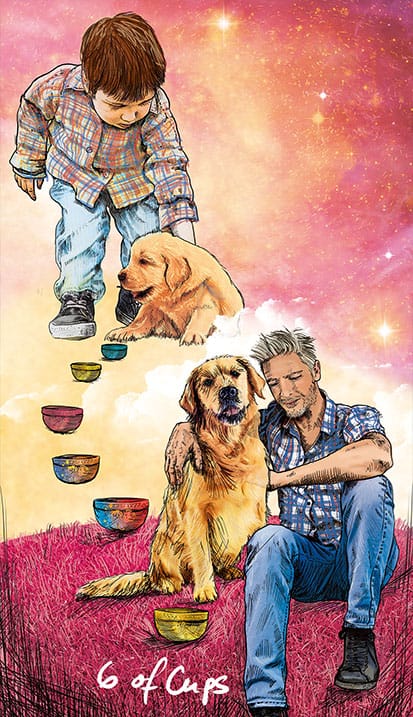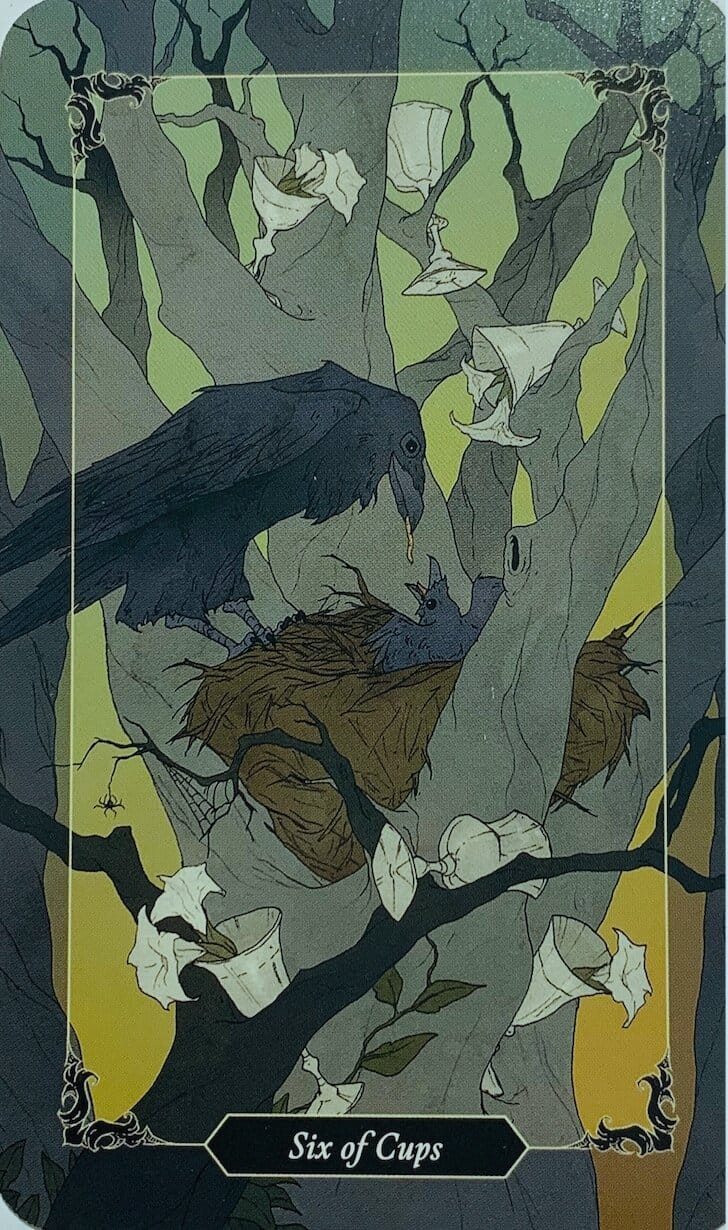Six of Cups
The Pinterest algorithm thinks I’m a SAHM (which only after googling do I discover means “Stay at Home Mom”) who has spent the last six years planning Jesus-forward gender reveal parties for my eighteen young daughters
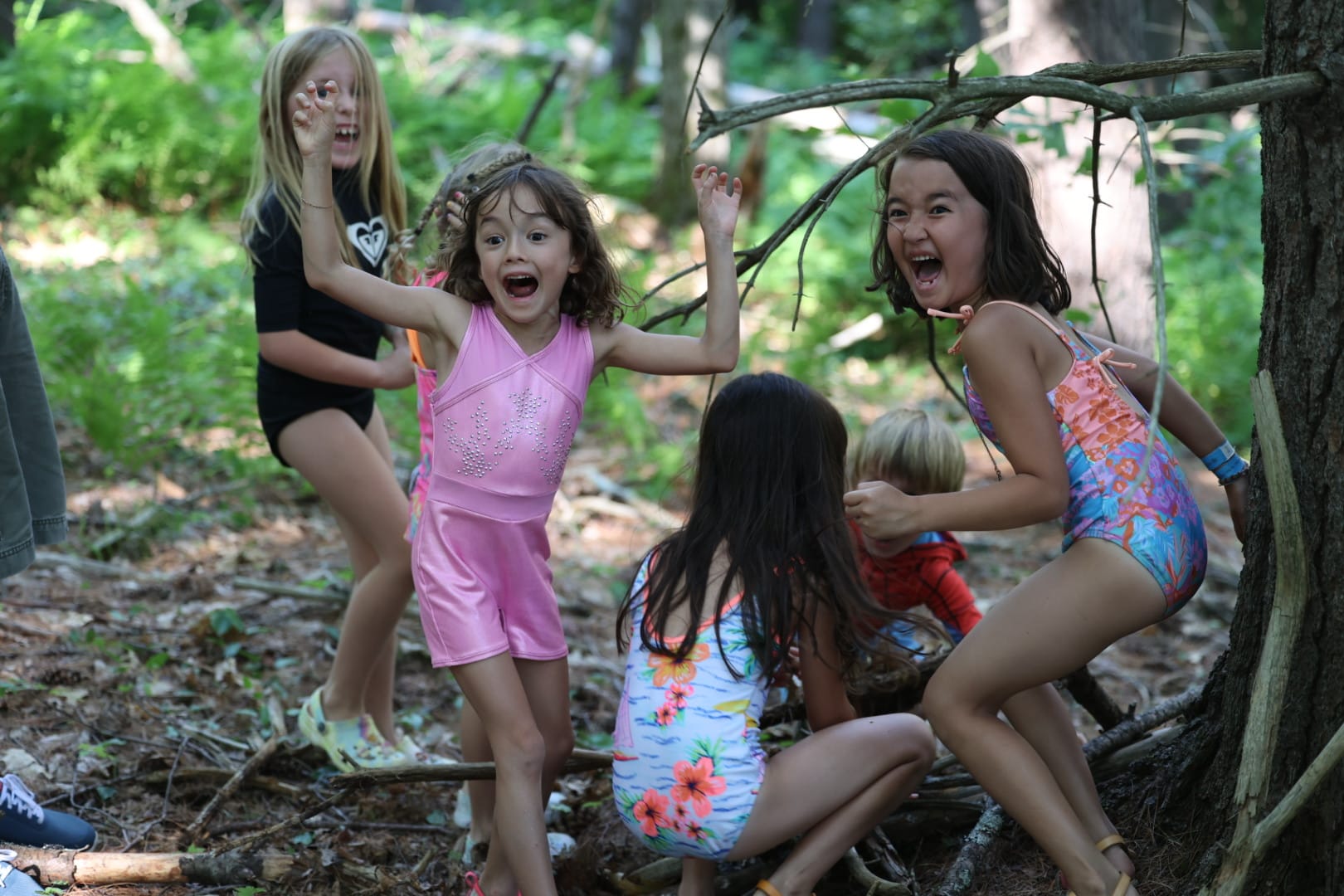
Six of Cups Playlist
It is December of 2021. Every night, as the news of the ominous Omicron strain of Covid builds, I toggle between Twitter and Etsy. On Twitter, things are bleak — the first person has died in Austin, Texas of the omicron strain, the Moderna vaccine is only 79% effective, people assault one another in big box stores over mask-wearing. On Etsy, I buy a taco costume for an elf plus ten tiny elf-sized tacos made by a woman named Ainsley in Tennessee.
I am late to the phenomenon of Elf on the Shelf, an elf-based Big Brother program designed to scare your children into believing they are being watched by mystical beings who report directly to Santa. I've never liked the authoritarian secret police vibe of it, but in December of 2021 I am careening off the edge of my sanity, and have gone from 100 mph to an abrupt 0, because I’ve been show running for six years with two different shows, and now suddenly... I'm not. I’m also facing a mountain of mom guilt, and plenty of time to wallow in it. For the last two years, my husband, and our incredible nanny, Kinga, have been doing ninety nine percent of the parenting. I have uprooted both them and the kids to a city of ice and snow in Canada where there are zero restaurants (or anything else) open because there’s a global pandemic afoot. Suddenly, and without warning, the Christmas of 2021 (which I will note, will be the last Christmas I’m still drinking alcohol) has to be THE BEST CHRISTMAS EVER.
My Pinterest “For You” page is all Elf pranks and Jesus quotes. The Pinterest algorithm thinks I’m a SAHM (which only after googling do I discover means “Stay at Home Mom”) who has spent the last six years planning Jesus-forward gender reveal parties for my eighteen young daughters. It’s true that I only use Pinterest for kid-related birthday party inspiration, but I’m no fan of gender reveal parties. In fact, I’m patently against. This algorithm doesn’t know my life.
I buy elf tacos to stave off the fear, as text after text comes in to let me know that every single person I know in the world has contracted COVID. On one tab, I find BinaxNow available on Walmart’s website, but after a millisecond, it’s gone. I didn’t click fast enough. I find one test on Amazon, available for the low price of $172. I guess we’ll skip the tests. Thankfully, on another tab, I find a Spiderman costume that will fit the elf. I also buy tiny Covid vaccine cards on Etsy — these elves are conscientious and their politics align with my own.
I am obsessed with making Christmas magical. And yet, in the daylight, my children just want me to watch them jump off the edge of the couch and scream “Spider-Man!” I don’t have the energy for that. I steal away to my office where I do not write or work. Instead, I buy a tiny bicycle for an elf. I fill my online shopping cart with tiny cereal boxes, a miniature bottle of Purell, a beach chair, crutches.
Play is not my forte. I find it difficult to stay in the moment. My children’s games have a lot of rules. Sometimes I’ll be congratulating myself for my fortitude, thinking I’ve successfully played for a half an hour, when one of my kids will suddenly announce, “Okay, now we can start.” So I'm not the best play participant, but I can produce the conditions for some pretty epic play.
My mother was a Pinterest mom before Pinterest. Starting right after our birthdays (my birthday is September 23, my brother’s is the 24th), my mom would begin her Christmas roll-out. If you ask my father how he’s doing anytime between October 1st and January 1st, he will grumble the word “Christmas” at you, and tell you “Mom hasn’t slept in a week.”
For years, my mother made Christmas ornaments for every single person she’s ever met (I'm writing this in the past tense in the hopes that she'll give herself a year off, but this is an on-going thing). The recipient list grew each year, and our not-very-big-home would become a kind of Santa’s workshop, but more stressful. By mid-December, my mother was usually in tears about how many ornaments she still had left to make, and my father was in a permanent mood. I thought I had escaped the family curse, but recently my husband revealed that he dreads the fall, because “that’s when the holidays begin.”
I always detected a hint of mania behind my mother’s ornament factory, and it’s clear that this particular mental illness is inherited. The elaborateness of my magic is directly related to my mental health status. The problem with magic is that once you’ve set a precedent, you cannot let your audience (the children) down. The winter of 2021 was one of the darkest of my life, so the level of production value the elves displayed was beyond. That’s really come back to bite me in the ass in years when I’m no longer an active drinker in a depressive down cycle.
For the past two (sober) summers, I’ve staged elaborate treasure hunts for my children and their friends in the woods surrounding my grandparents’ farm in Vermont. These scavenger hunts have backstory, mythology, and ongoing character arcs. The first summer, I convinced the kids that my grandfather let me in on the family secret that there was pirate treasure hidden somewhere on the property. I made up a long story about how my cousins and I had searched year after year, but were never able to find it. Then, I handed them the first clue, a weathered letter shoved between the pages of an old copy of Treasure Island that I bought on Etsy. The letter’s author was one “Captain J” (later revealed to be a lesbian lady pirate — always keep the audience guessing!) writing to her lover about the treasure, with a coded message that began an epic search.
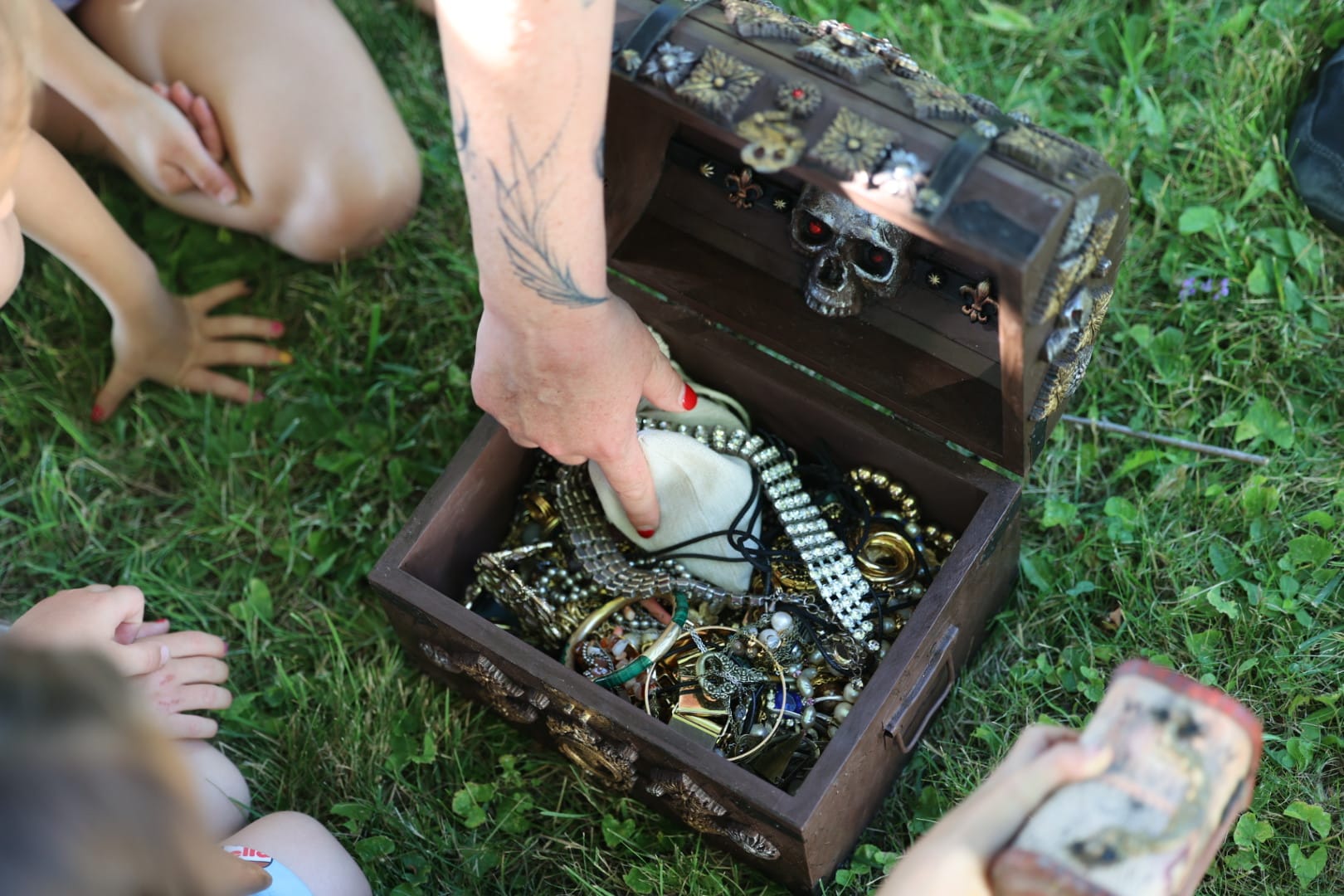
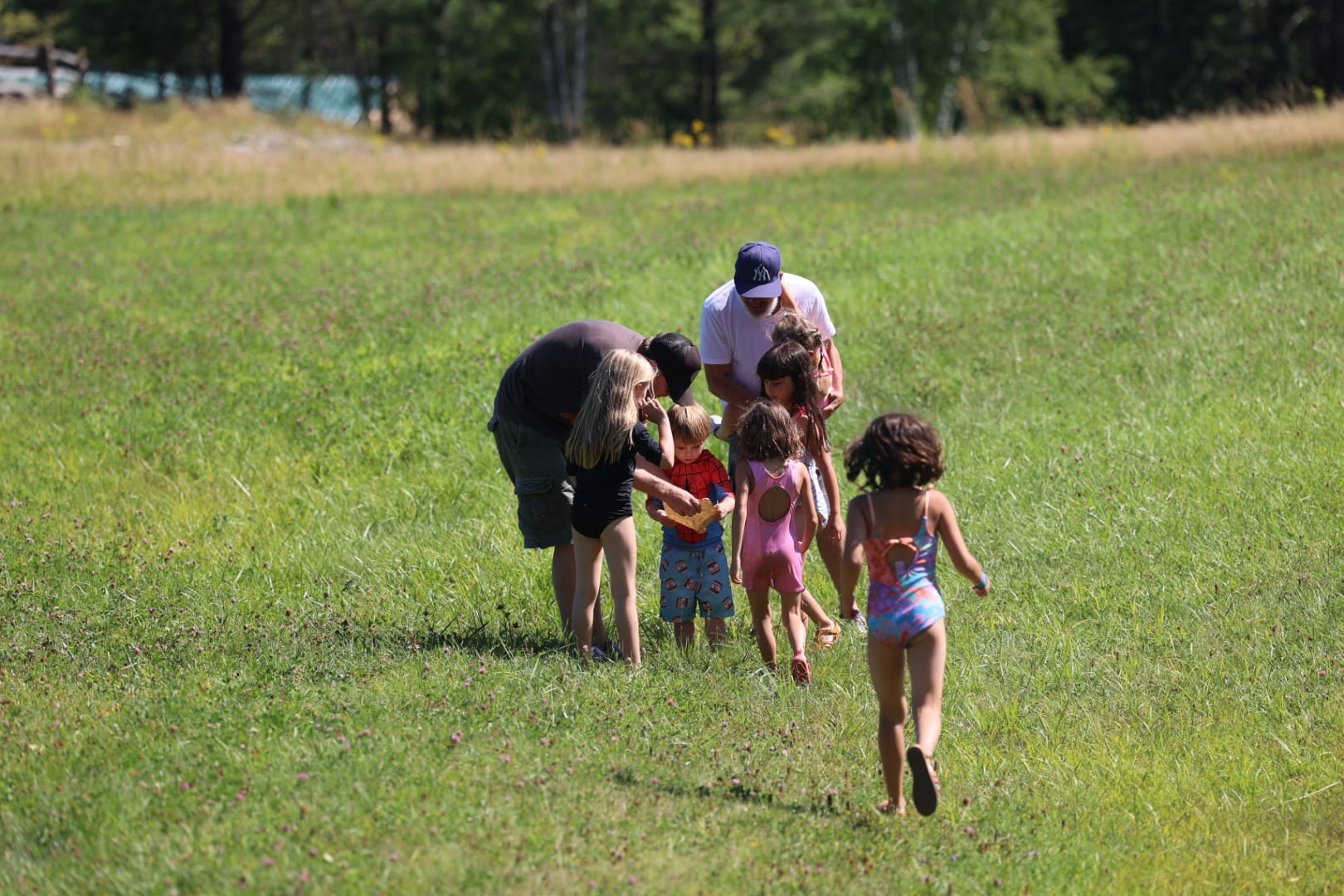
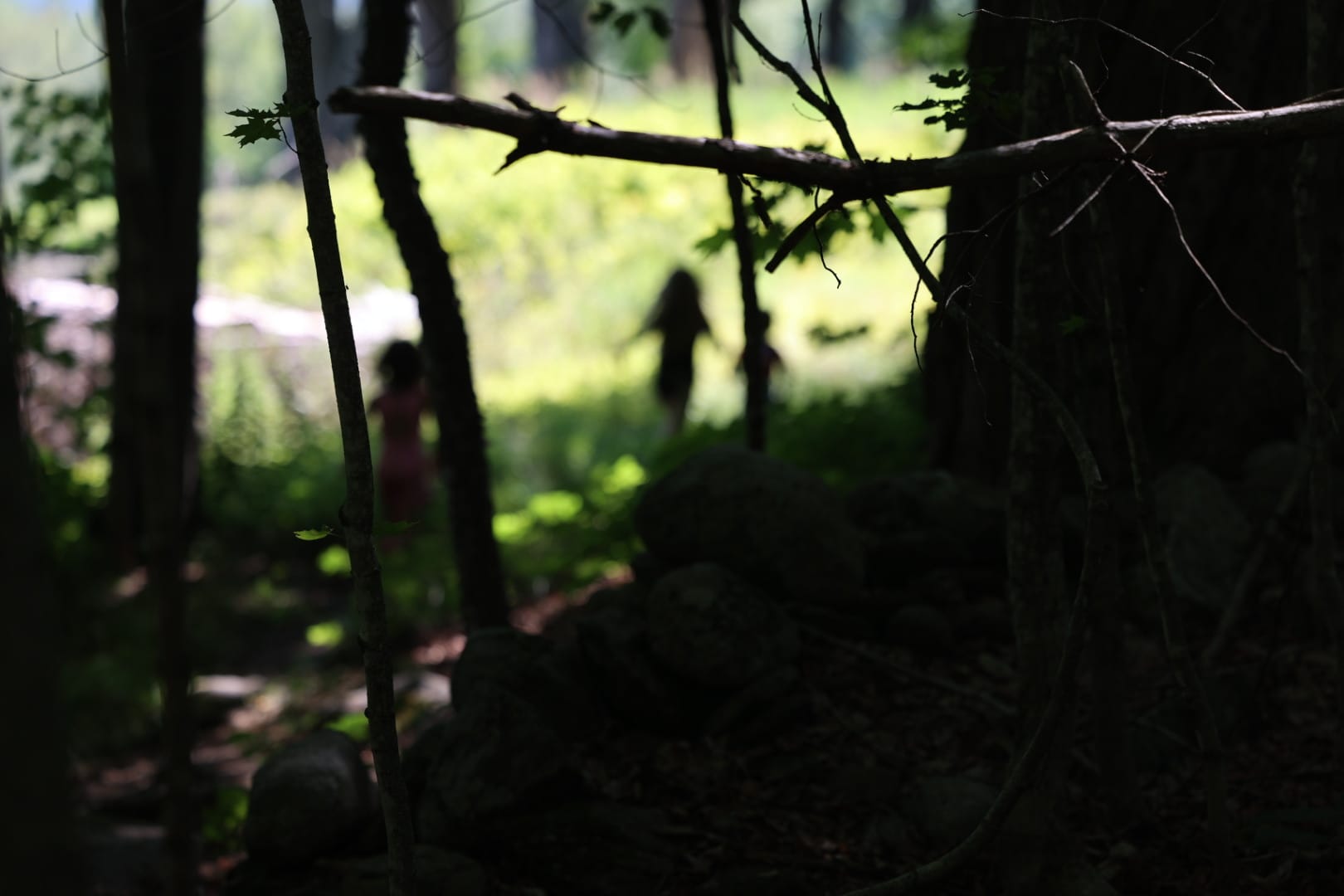
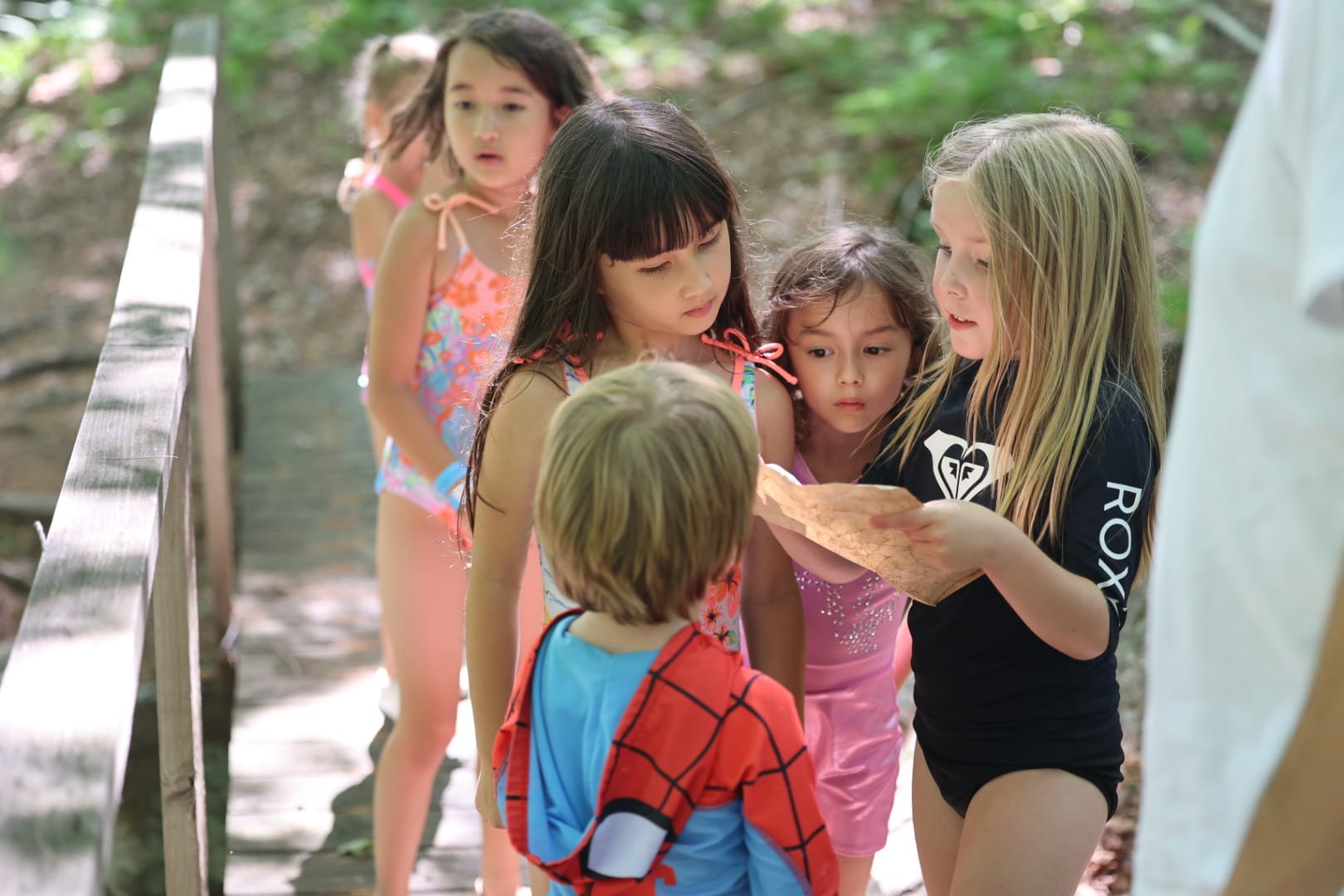
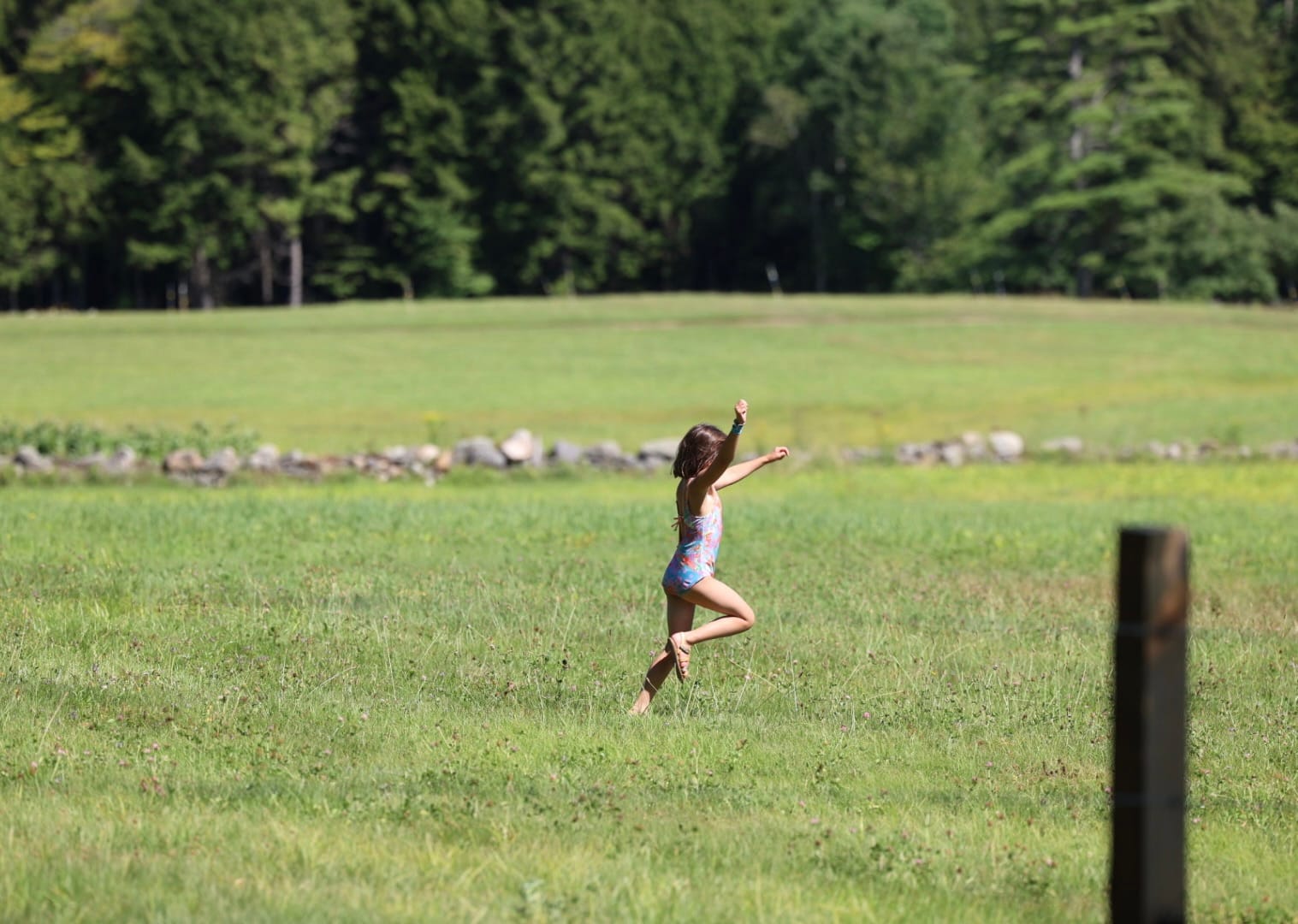
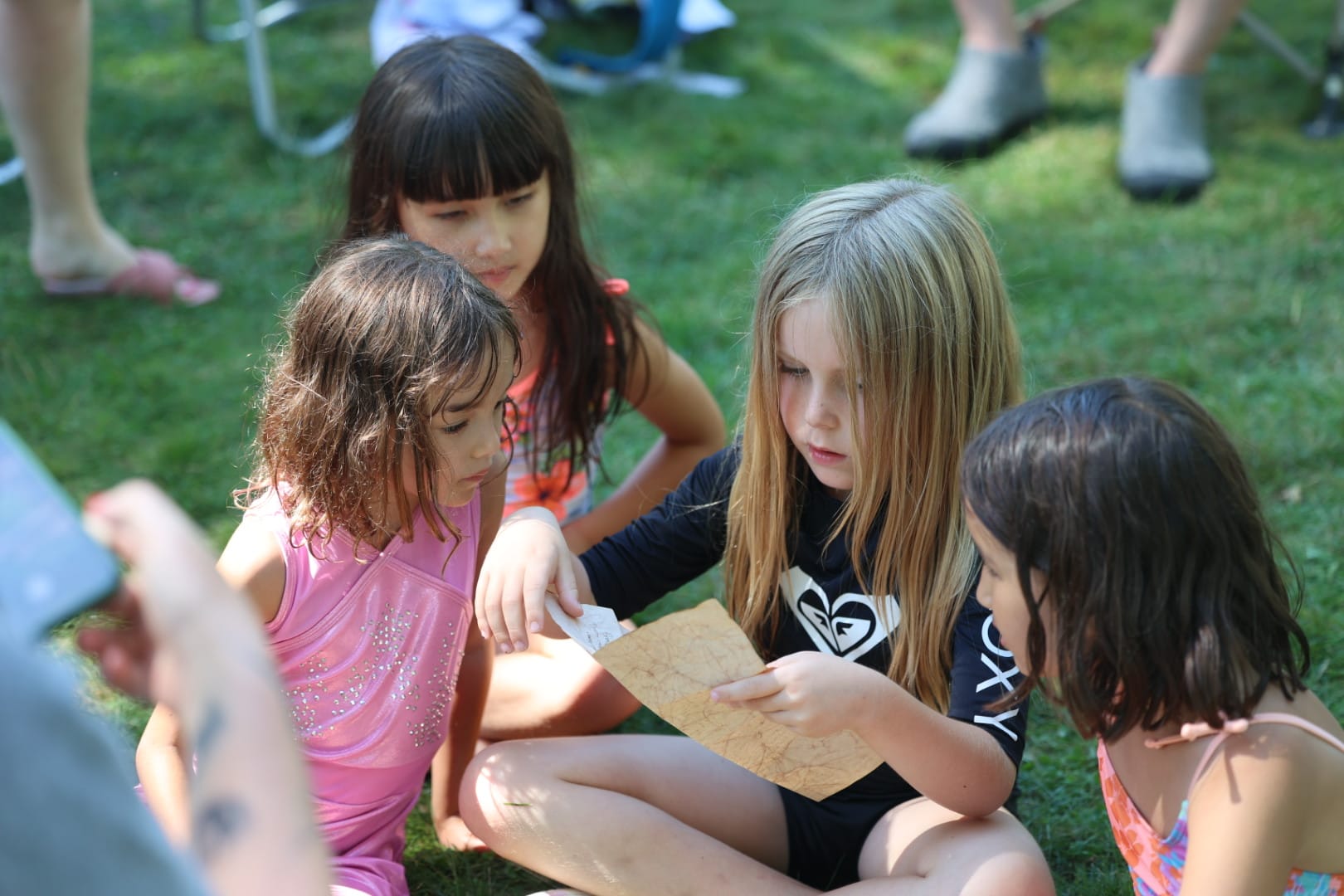
Year One. Captain J and the buried treasure.
I was so excited about this treasure hunt, that as soon as it began, I picked up my then-four-year-old and sprinted down a dirt hill, fell brutally and split my knee open. Multiple observing adults told me to sit the fuck down and rest the knee. I refused (I needed to see this play out) and I ran around on that split open knee, blood gushing (fine, trickling but with gusto) down my leg, for the rest of the afternoon. That knee, by the way, is still fucked up, and I have a permanent scar. But at least I didn’t miss the insane joy and sense of accomplishment on their faces when, after hours of searching, the kids finally found the treasure covered in moss at the base of an old tree.
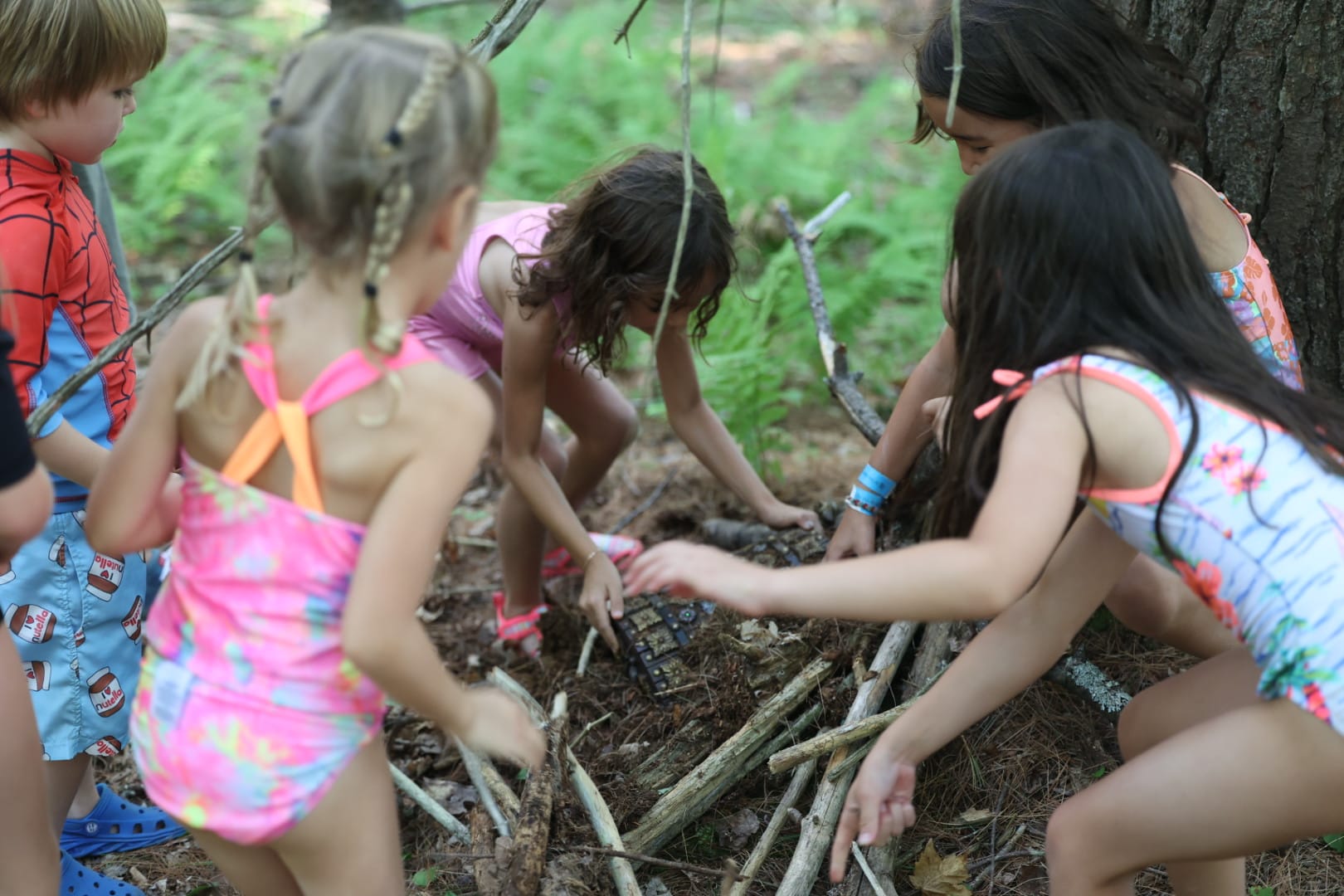
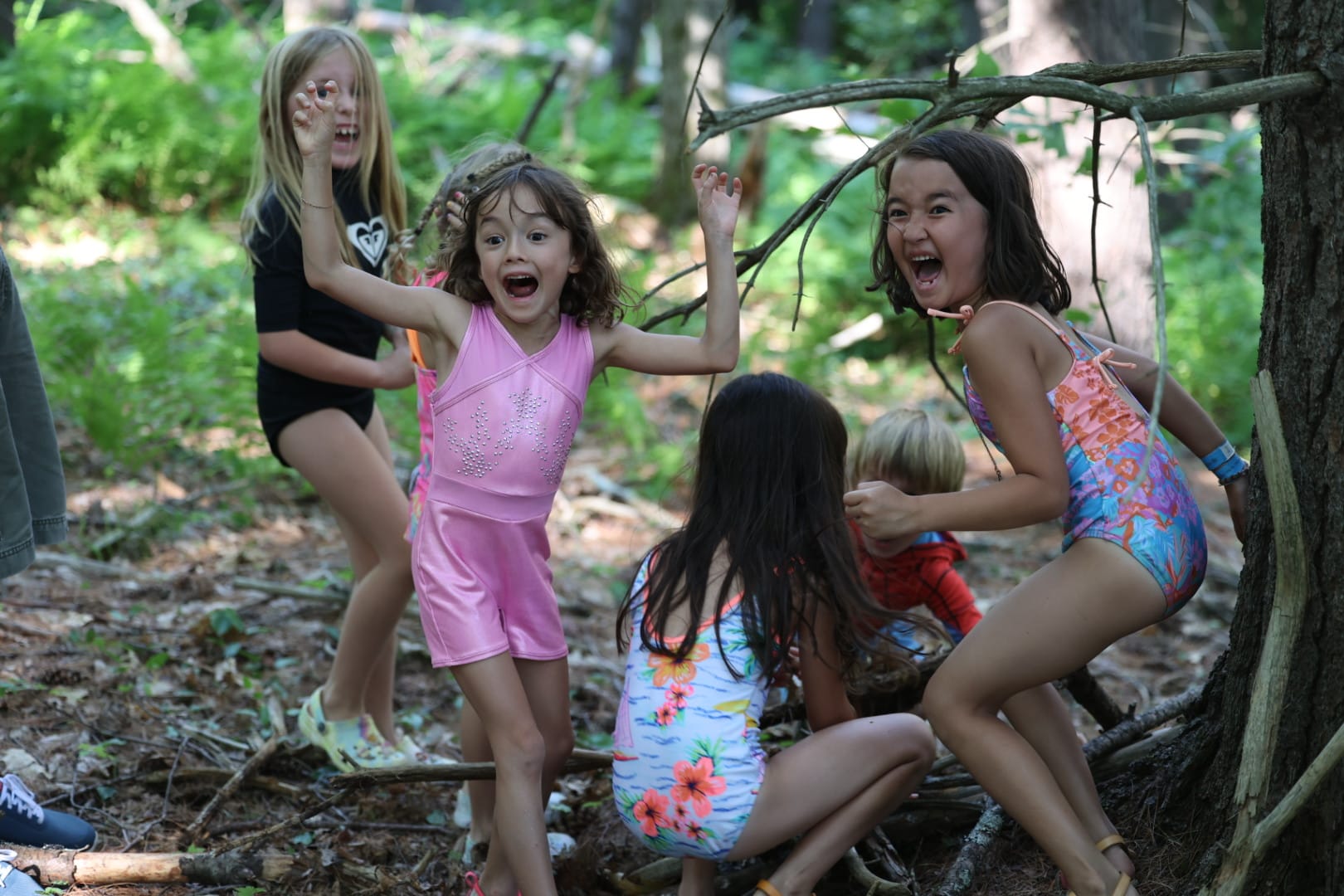
Look at the sheer joy on the faces of children who have just found a pirate treasure.
The following summer, the children were summoned by two princesses of a fairy kingdom. Apparently, the pirates had returned in search of their treasure and when they found it missing, they blamed the fairies and stole eight magical fairy relics. The fairy princesses begged the children (who they called "Thunder Walkers") for their help to find the relics and restore the magic to Dianthe (the well-researched name of the fairy village). The children were invited to visit Dianthe (a physical place made by me) and spent a full day running around the property completing puzzles and searching for relics and clues.
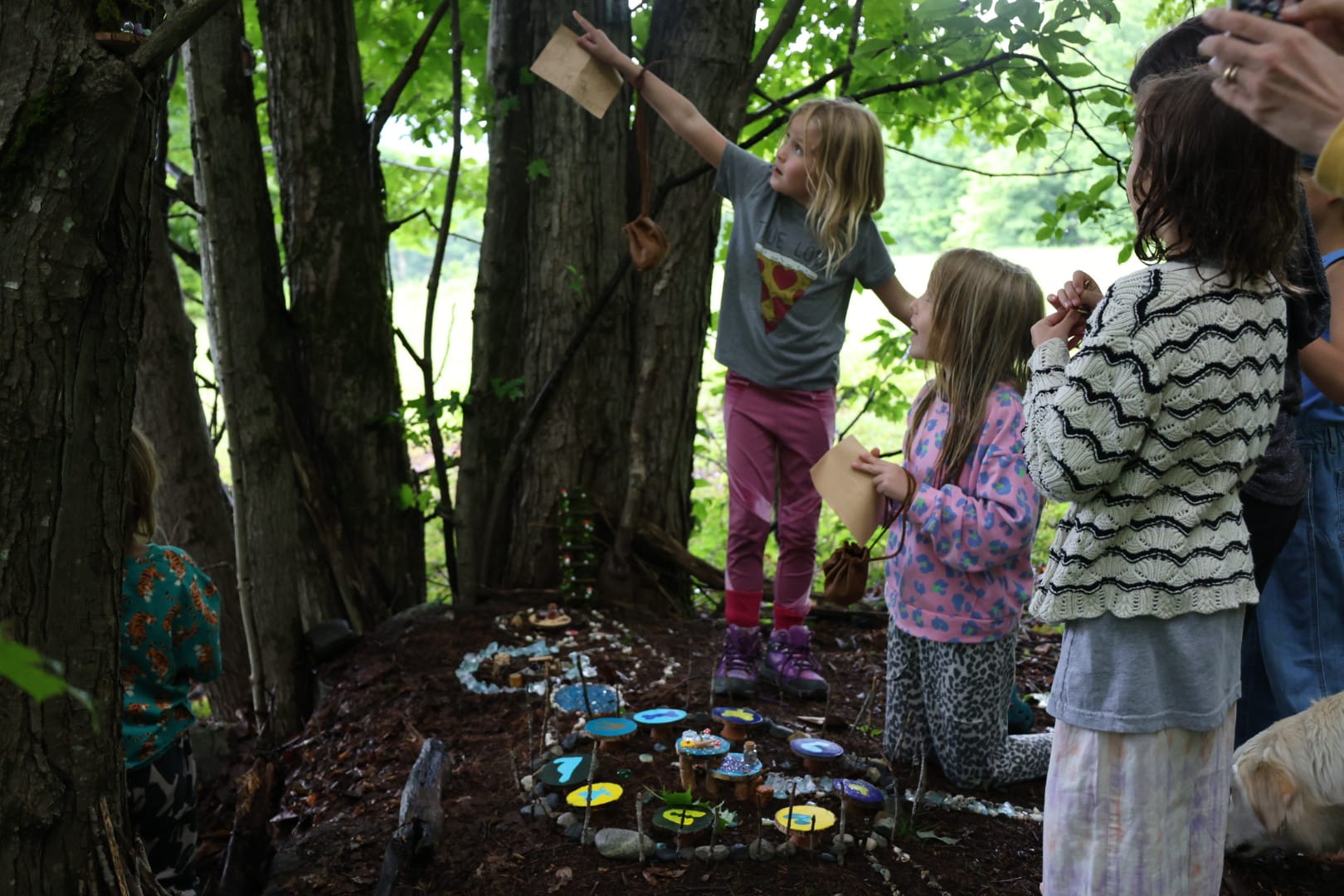
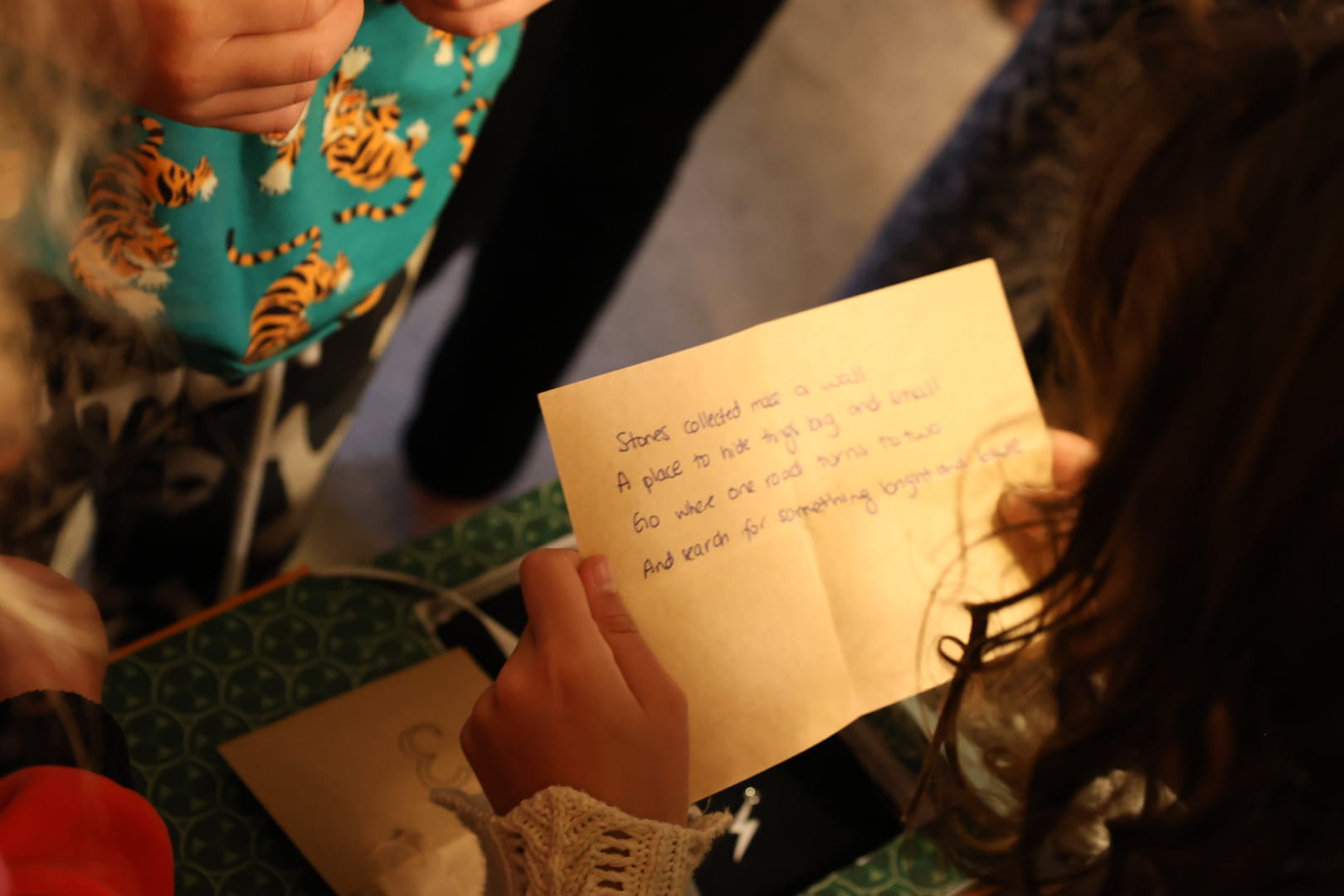
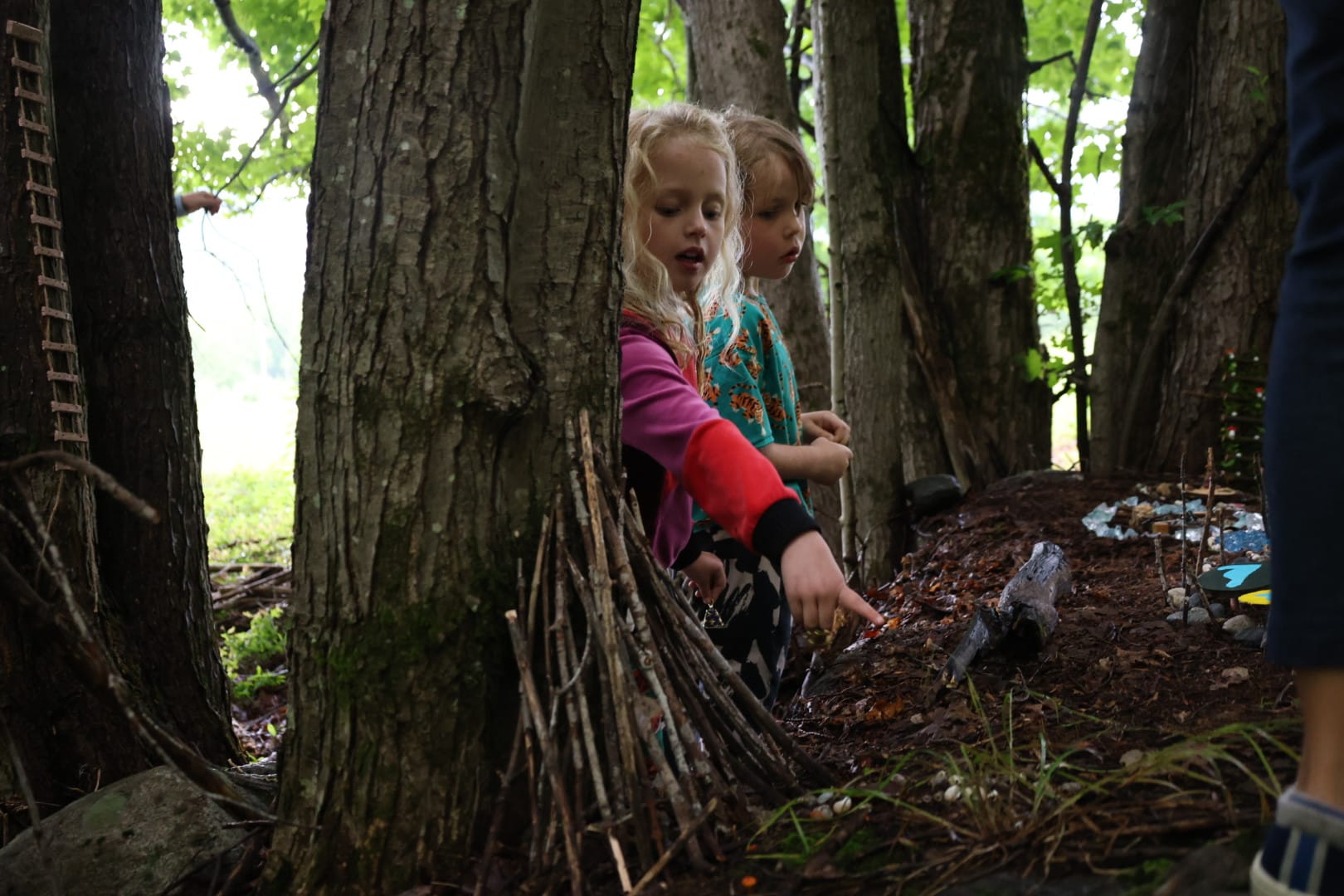
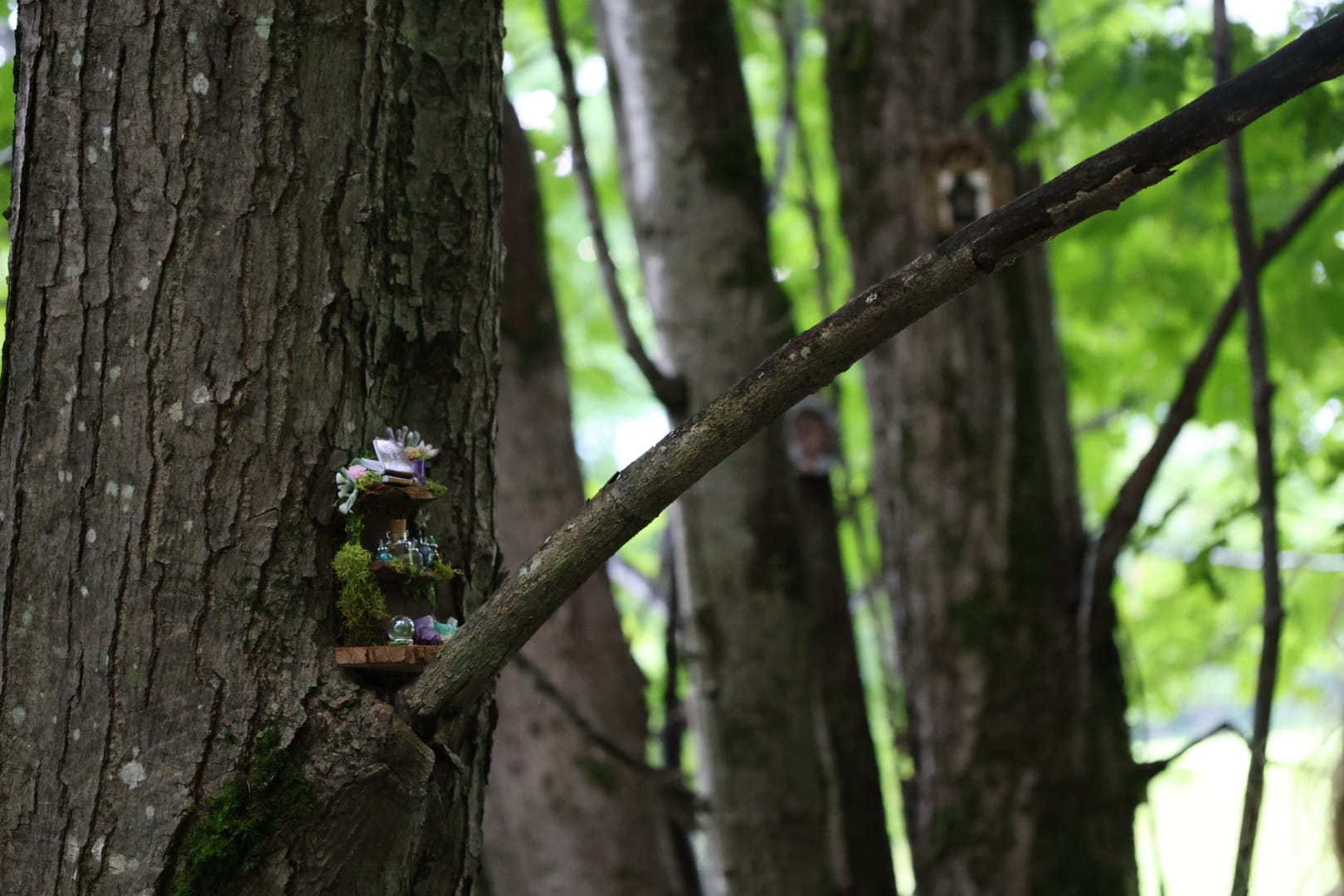
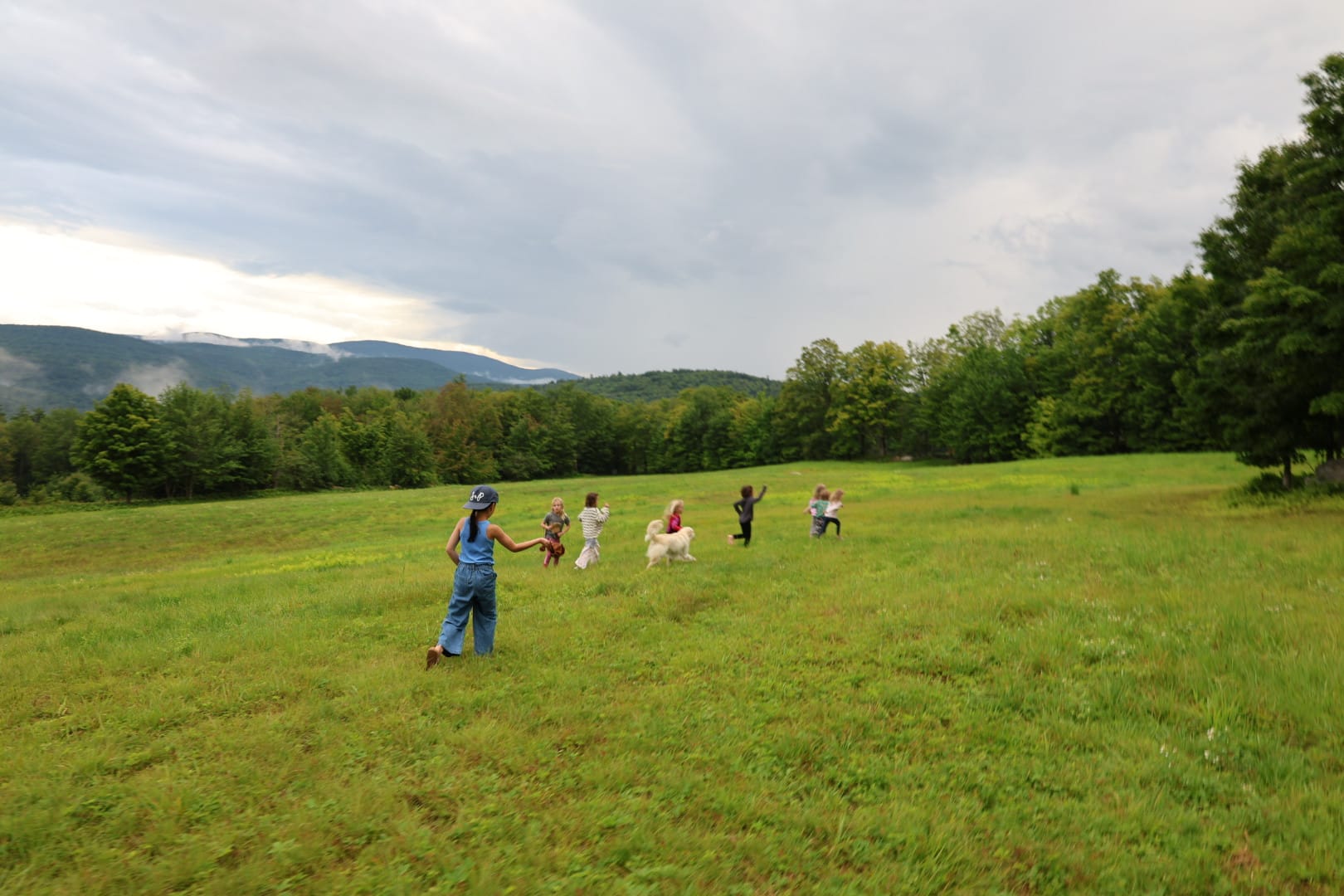
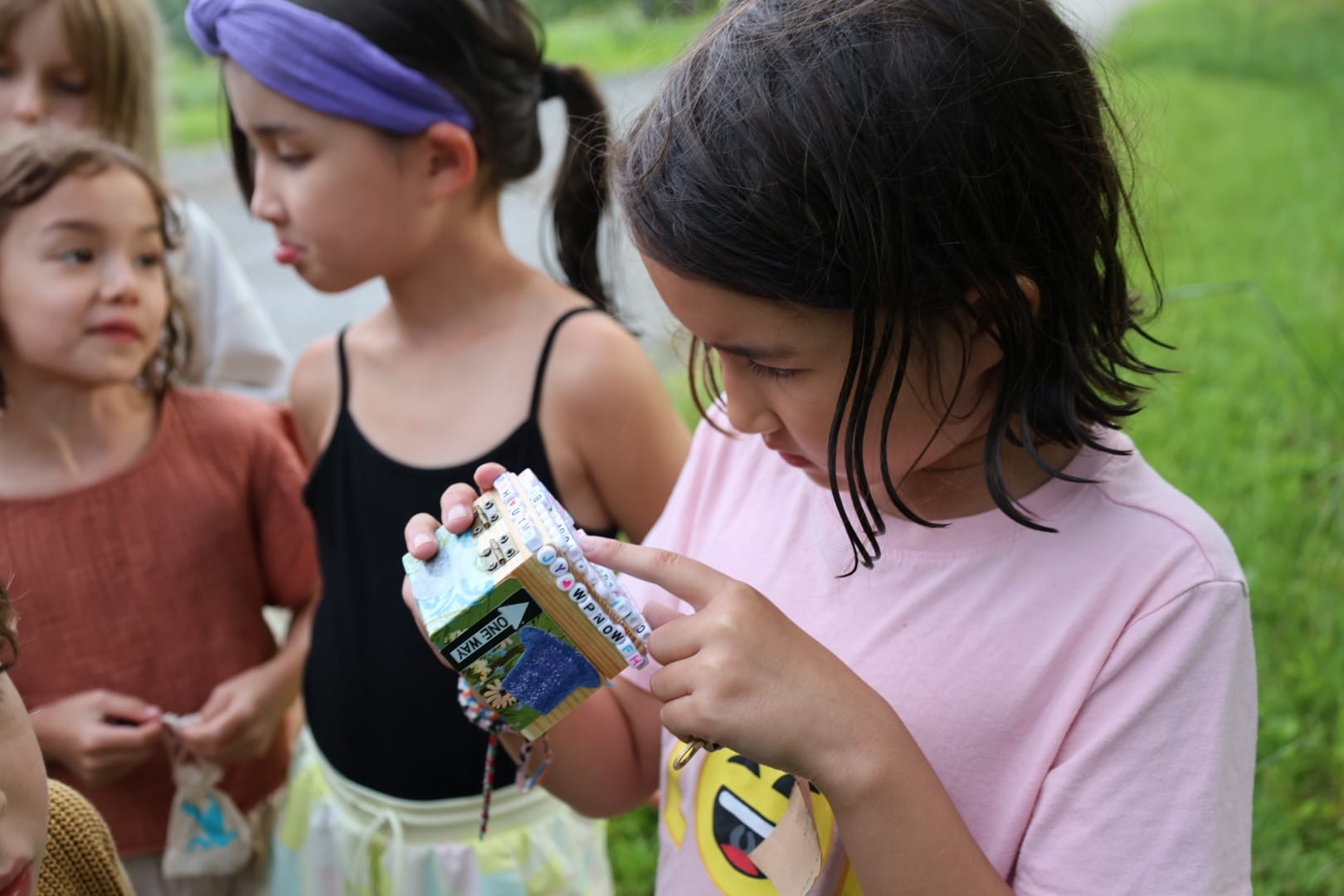
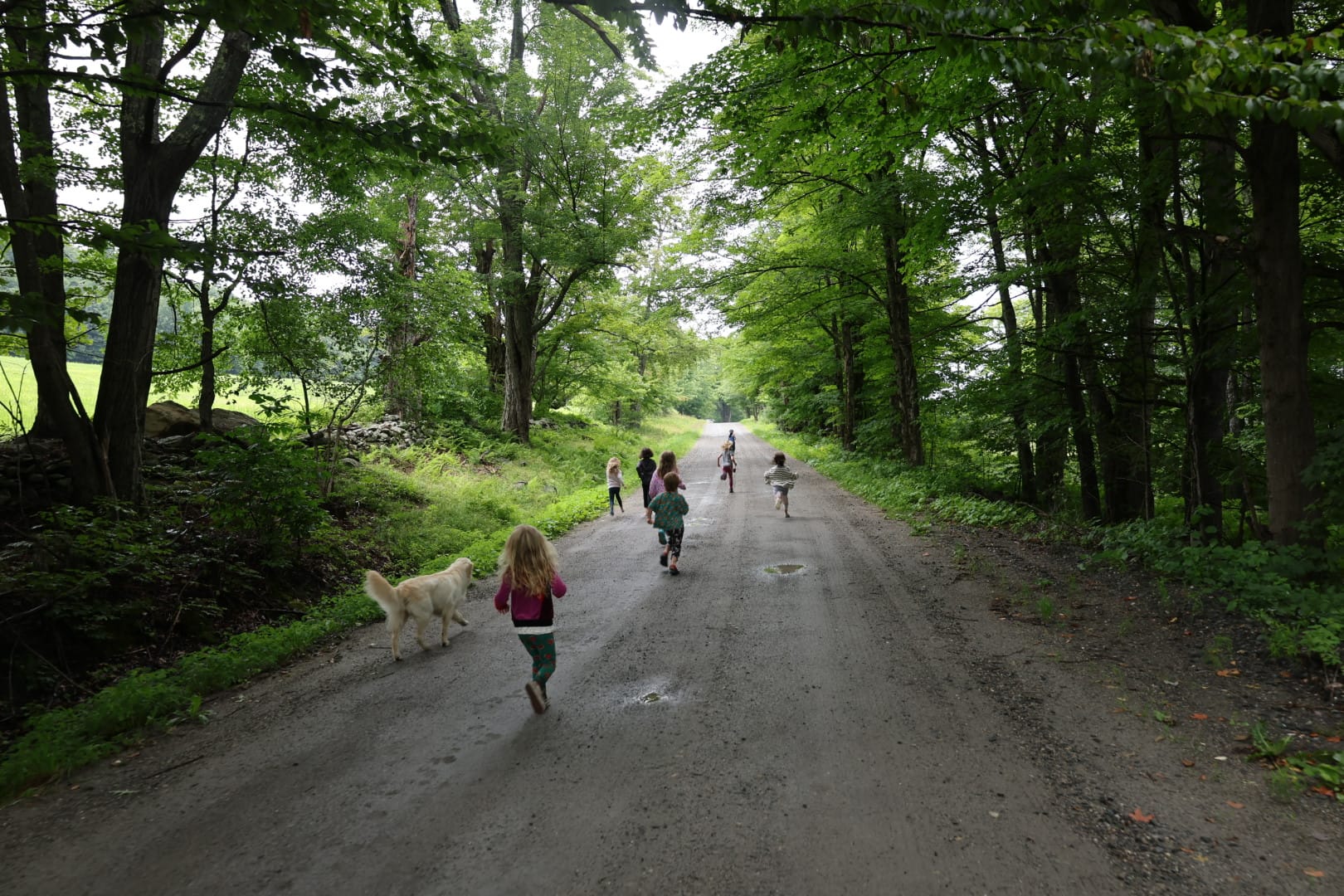
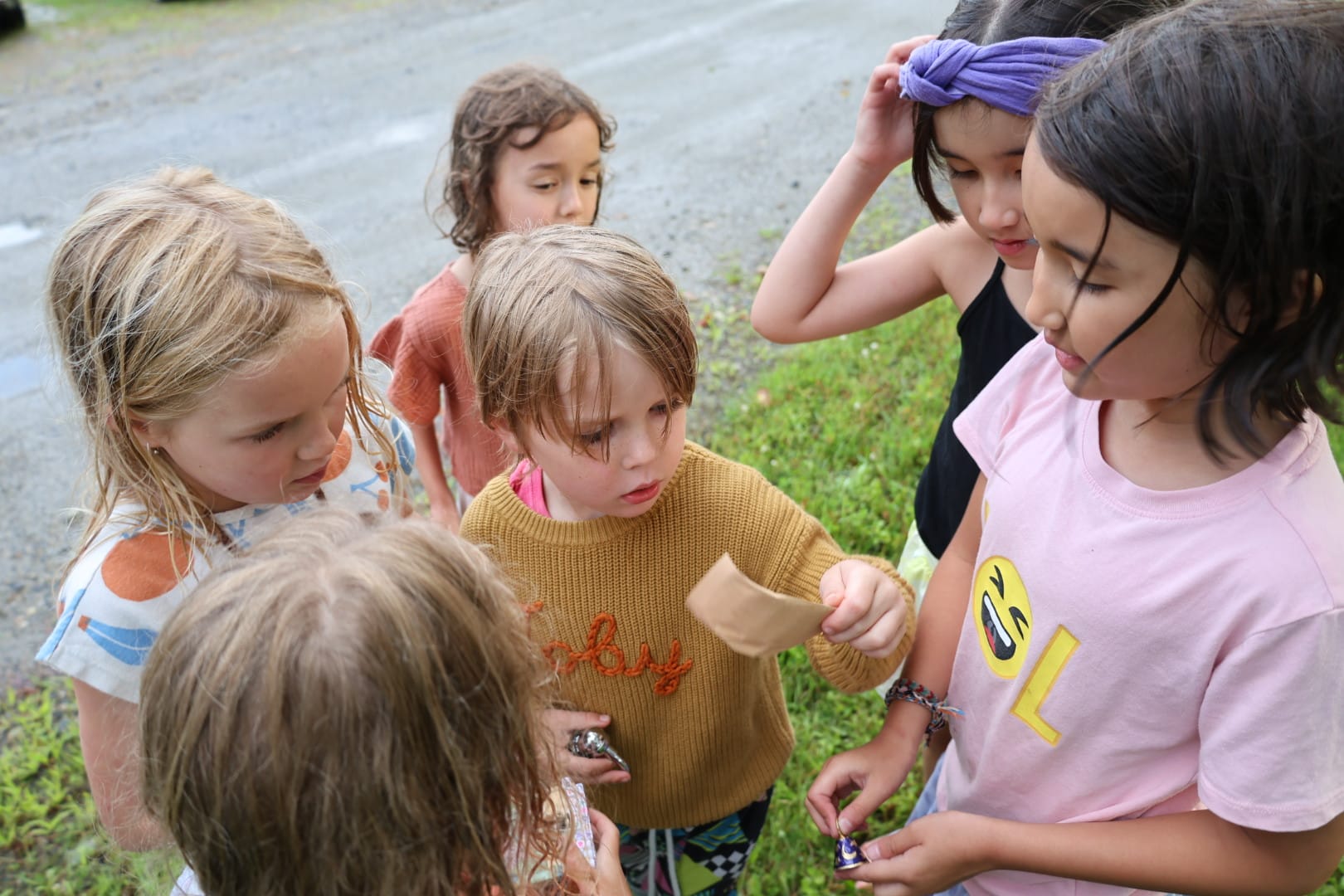
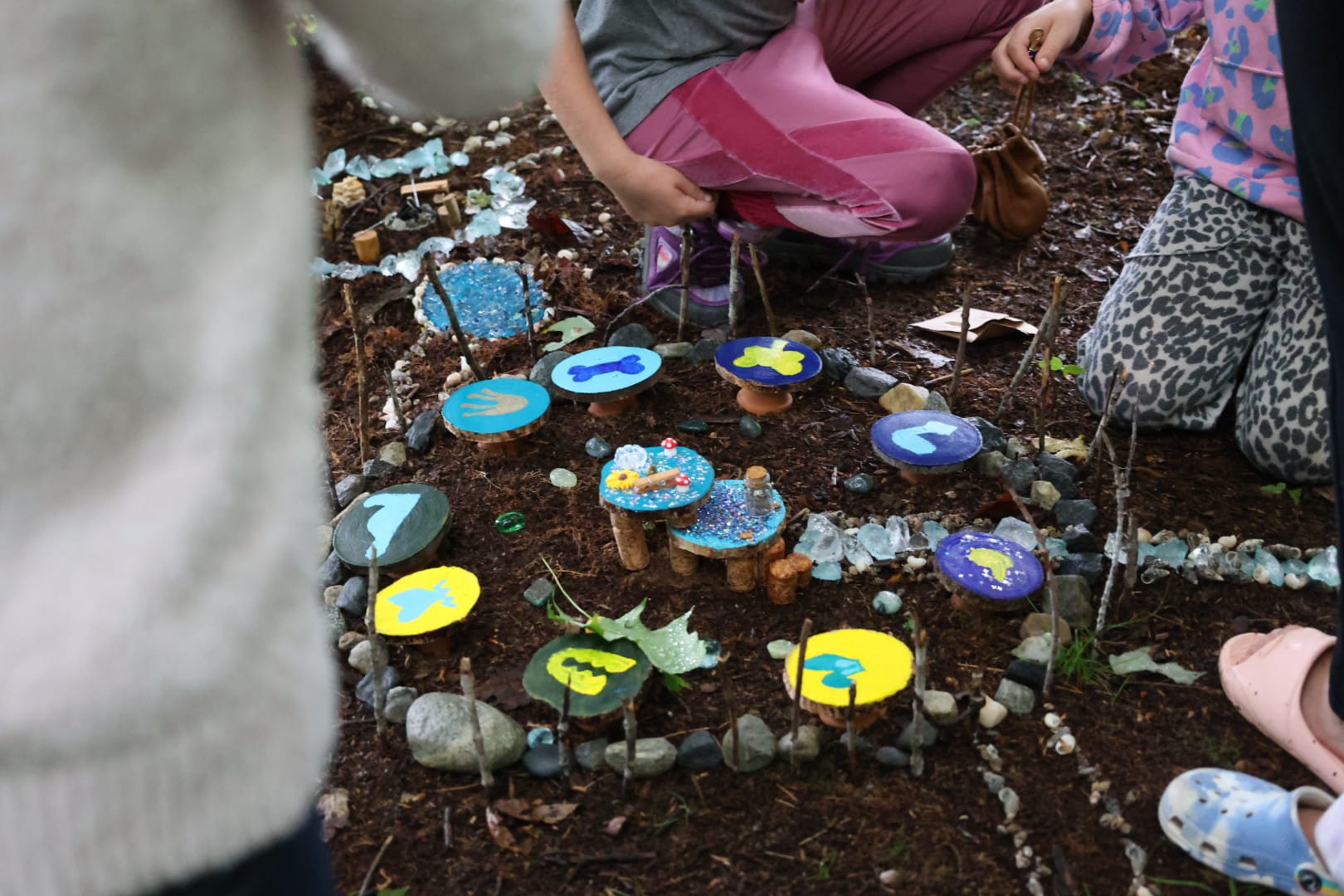
Year 2. Queen Aline of Dianthe seeks the children's help to recover the magical animal relics for the fairy kingdom.
The six of cups captures the magic of children — innocence, play, creativity, and simplicity. When you pull the six of cups, you could interpret this as a message from your inner child, or an indication that someone from your past may soon re-enter your life. Perhaps you’re traveling home, or attending a reunion. I sometimes think of the six of cups as an indication that there are small, vulnerable, and hidden parts of myself that need attending to. The six of cups is a joyful card, heralding familiarity, safety, and happiness.
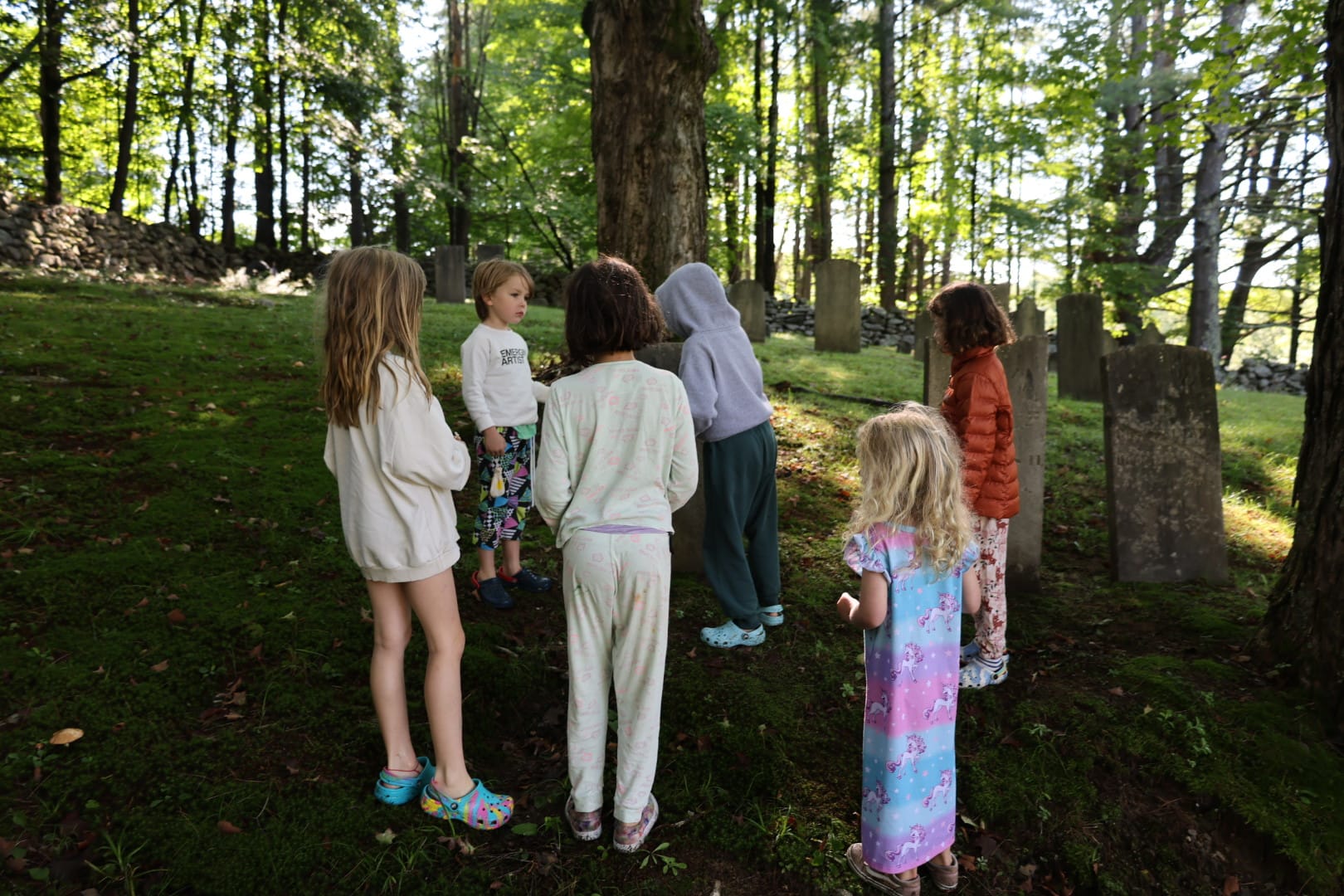
This summer, as I plan the third installment of the Vermont chronicles (introducing the existence of forest trolls), my daughter sits perched on the precipice of disbelief. I can feel the pull of logic and reason in her, in spite of the many ways she seeks out magic in the world. I remember the year I finally accepted that Santa Claus wasn’t real, and was allowed to stay downstairs with the adults to arrange presents. I spent about fifteen minutes watching my parents, aunts, and uncles shove presents under the tree before going upstairs to cry myself to sleep. I wasn’t ready for adulthood. In spite of how much I wanted to be in the know, I wasn’t ready for the spell to be broken.
My son just turned six, and he lives entirely in a world of make-believe. He knows in his bones that the treasure he found in Vermont was put there by real life pirates. He believes he helped save a fairy kingdom with his friends last summer. Six is the sweet spot of childhood — old enough to participate in adventures and remember them, but young enough to imagine the reality you want to live in.
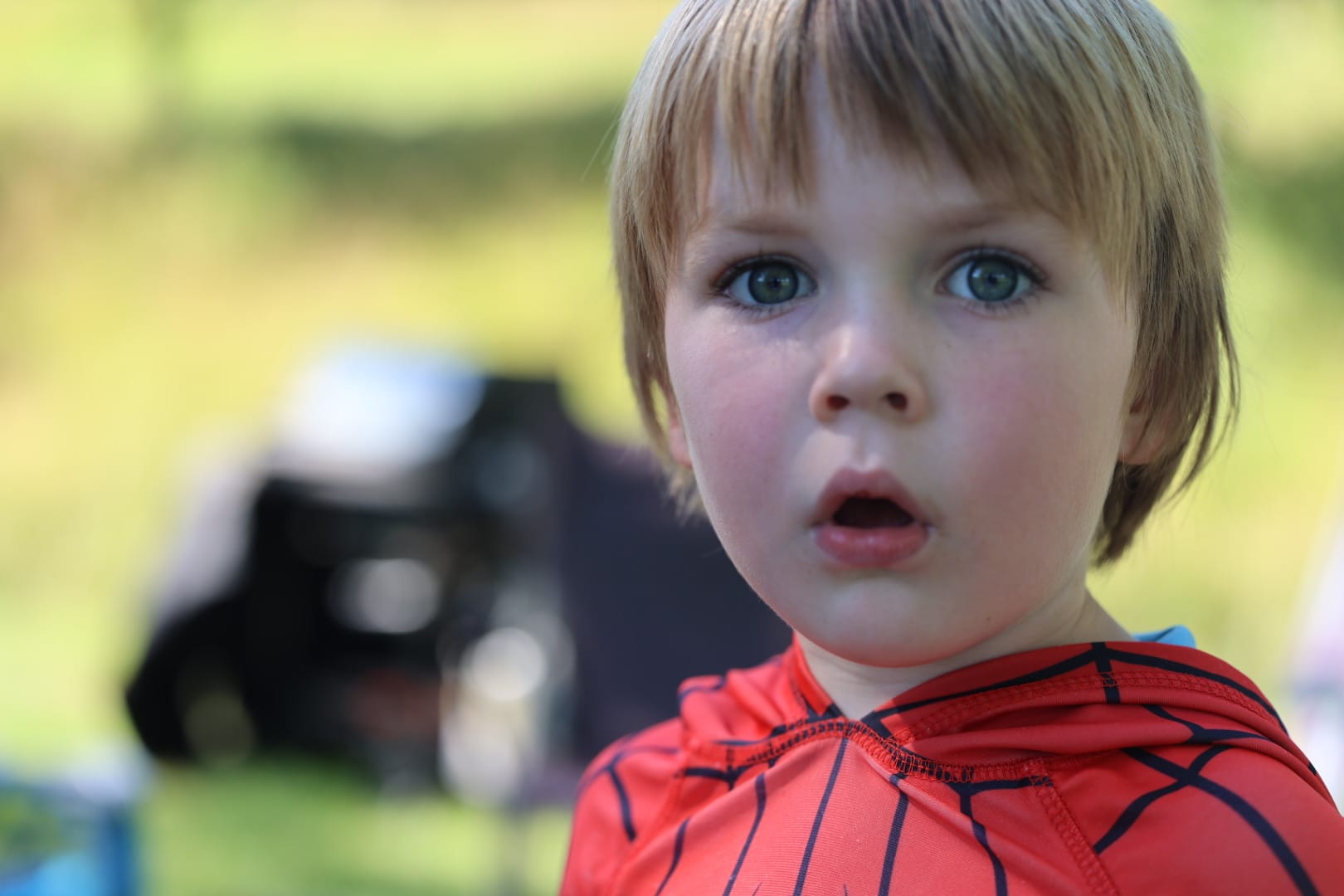
My daughter, on the other hand, will turn ten at the end of the summer. She listens to Olivia Rodrigo and Sabrina Carpenter and she’s currently binge-watching Young Sheldon. Every time she has a friend over, they cake their faces with glittery makeup, and play “teenagers.” This might be the last summer that she is willing to suspend her disbelief to go in search of treasure in the woods.
I know that parents have different philosophies about make believe. Most people agree that the job of children is play, but childhood seems to end earlier now. I believe that the lies I tell my children about magic are benevolent, that they contribute to an imaginative inner life where anything is possible. Some parents take the position that, when asked if Santa is real, they aren’t going to lie. My position is that the answer really must depend on the tone of the question. There is a difference between a child saying, tell me, I really want to know the truth, and I’m asking because I want you to make me feel okay about continuing to believe.
I know that my dedication to elaborate treasure hunts, elf based prop comedy, Santa Claus, and magic comes from a place of longing within me. I know there is transference, inner child work, internal family systems and plenty of other buzzy psychology terminology you could use to describe my state of mind as I burn the edges of parchment paper to age treasure maps. I know that my children would probably be just as happy if I spent an afternoon spraying them with a garden hose. Some of this magic is for them, of course, but I’m not blind to the ways that it is also for me.
But that's okay, I think! It's okay that I derive pleasure out of concocting magical worlds. Sure, there’s some working mother guilt, genetic mental illness, the semi-traumatic reverberations of having been a professional child actor, light mania, the invisible work of women, and sensory seeking ADHD at play in my elaborate plots to convince my children of hidden realms. But! These schemes are also a healthy outlet for my nostalgia, and a way to show my children just how much I love them (even if they'll only know it was me in retrospect).
The six of cups reminds us that childhood is fleeting, but it is not just a period of time. Childhood is a place that lives within each of us, and the power to tap into it is worth honing. Now excuse me while I get back to the important work of constructing a backstory for a troll named Dovregubben.
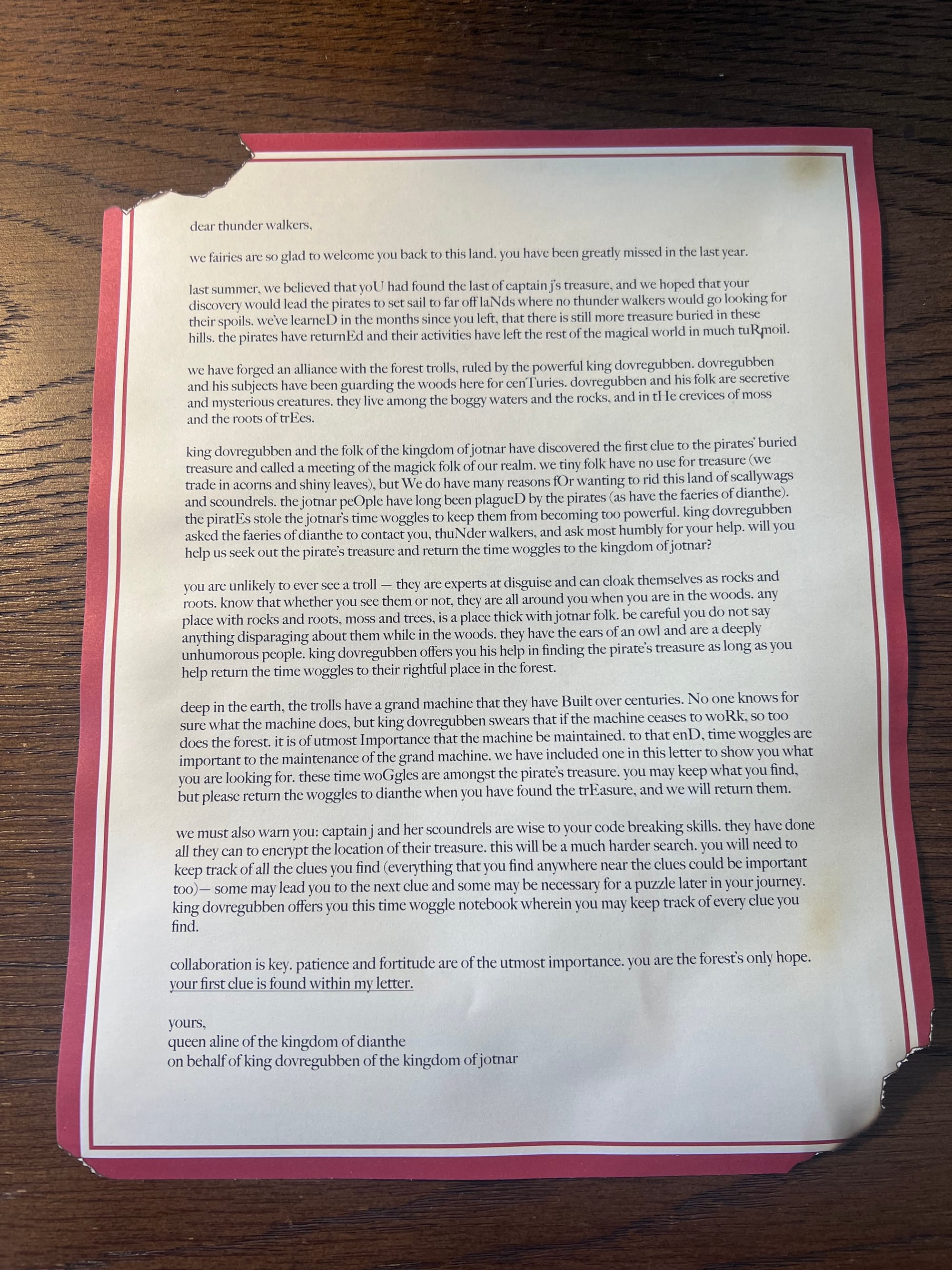
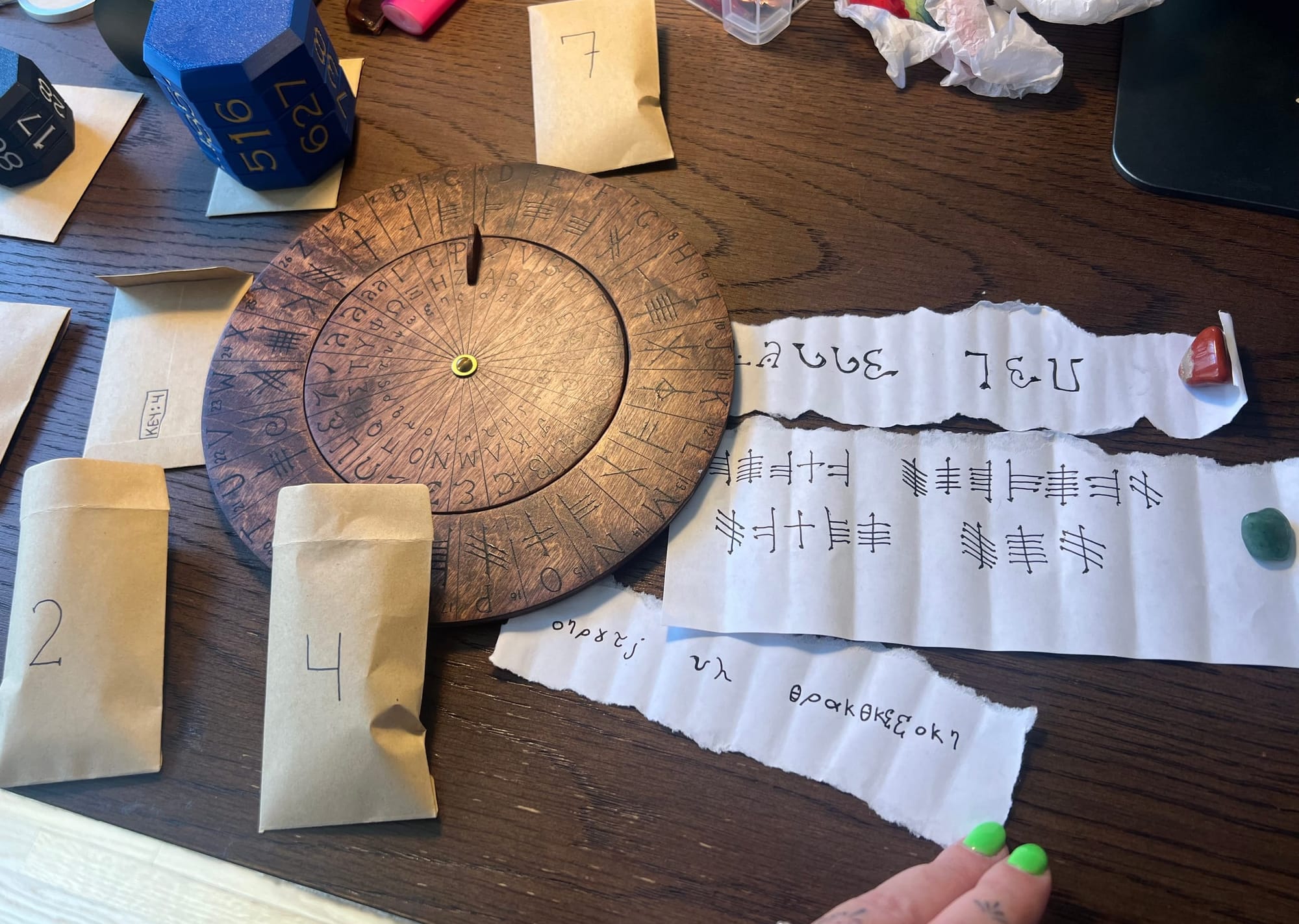
a sneak peek at this year's treasure hunt in progress.
